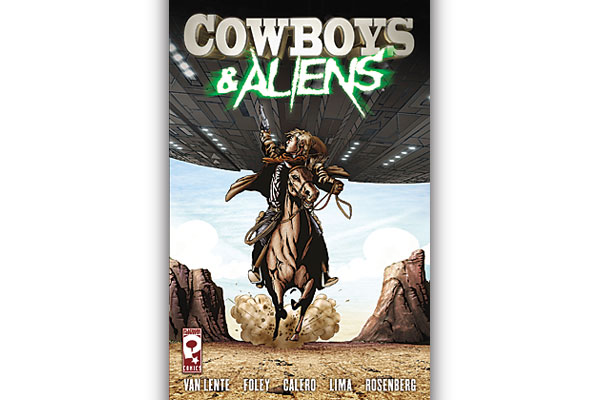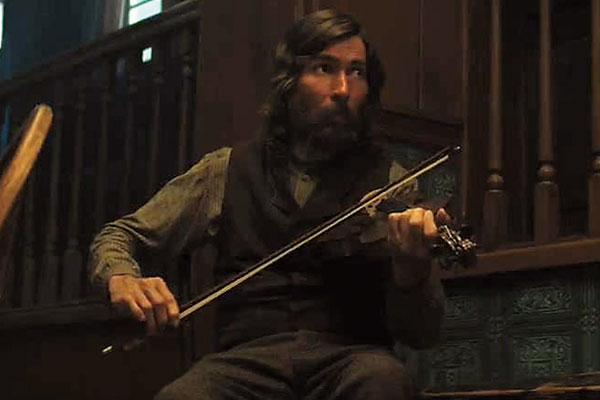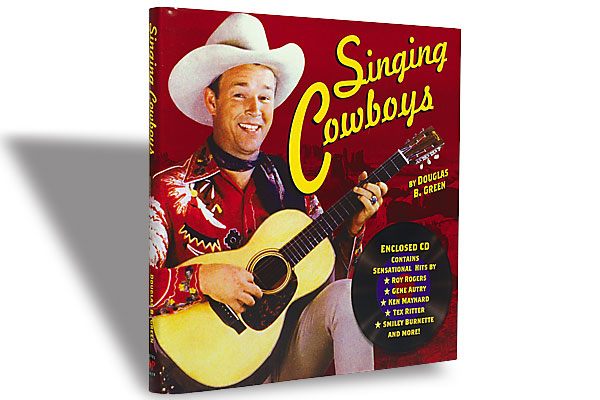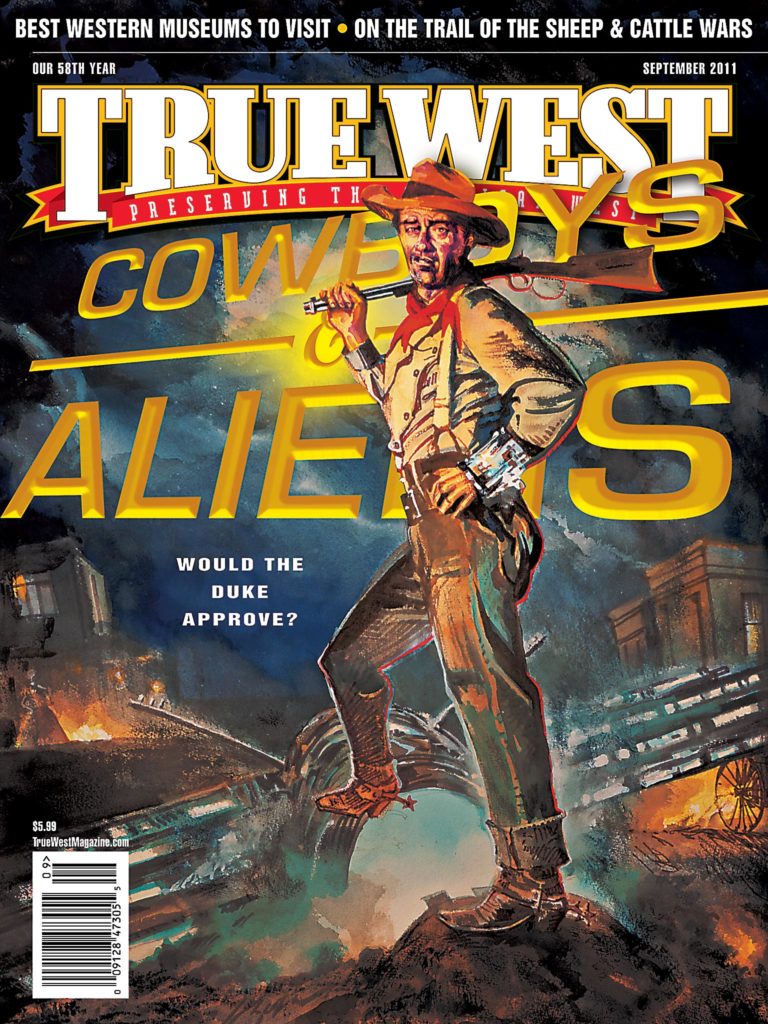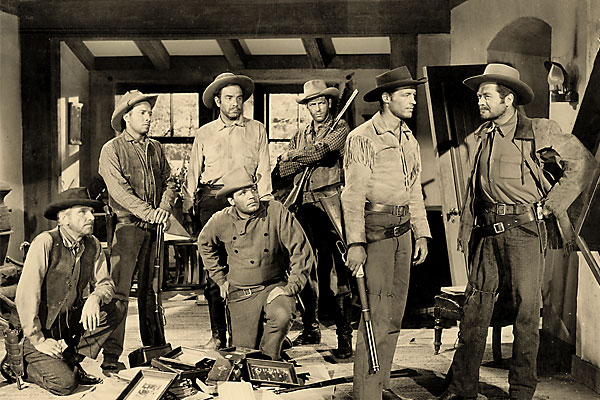 I was in Taos, New Mexico, in May 2010 lecturing on Davy Crockett when executive producer Denis Stewart tracked me down.
I was in Taos, New Mexico, in May 2010 lecturing on Davy Crockett when executive producer Denis Stewart tracked me down.
Stewart, an old pro who had cut his teeth in the film business working on the Grizzly Adams shows in the waning days of the Western, needed a historical consultant for the DreamWorks/Imagine production of Cowboys & Aliens about to begin shooting near Santa Fe. I had performed the same role for Ron Howard’s 2003 film The Missing, and Howard was a producer on Cowboys & Aliens as well.
A week later I spent a delightful day with director Jon Favreau and writer Roberto Orci. Favreau and Orci were both determined to create a believable frontier environment in their film. Their Science Fiction fantasy would spring from a quite traditional Western story. They were anxious to get everything as right as possible in terms of the historical context for the film—and that was to be my job.
They shared with me how producer Steven Spielberg had screened John Ford’s The Searchers for them. Noting the misty-eyed reverence Favreau and Orci had for my favorite film, I seized the moment to suggest that they use some music from it in their film. One recurring theme used by Max Steiner is a variation on the great love song of the American Civil War, “Lorena.” I became so enamored of the tune that I named my daughter after it. Favreau loved the idea of using “Lorena.” He wondered if I knew of any traditional musicians who could perform it, and I suggested Rex Rideout, who had made a wonderful recording of the song with Mark Gardner.
Favreau and Orci charged me with reviewing the script for historical inaccuracies as well as suggesting authentic period speech for the dialogue. The historical accuracy was easy—changing a railroad robbery to a stagecoach robbery since the rails had not yet reached territorial New Mexico, or making sure weapons used by the cowboys and the Apaches were accurate—but the dialogue was tougher. I pulled a 1968 classic by Ramon F. Adams, Western Words: A Dictionary of the American West, off the shelf and set to work. After I completed my task, I left the Bonanza Creek town set and returned to my more prosaic day job as a professor at the University of New Mexico.
Then this past April, ADR casting director Barbara Harris called me in to see if I could assist her with the “Loop Group” sessions on Cowboys & Aliens. Barbara wanted me on site to write snippets of background dialogue for the street and saloon scenes to make certain the actors did not use modern colloquialisms.
Ten female and 10 male actors formed the Loop Group talent, under the shared command of Barbara and ADR sound editor Marilyn McCoppen. Marilyn had spent much of her career working with George Lucas, and I was delighted to hear her tales of one of her first jobs— on the IMAX production of Alamo: The Price of Freedom.
Much of our Loop Group week was spent screaming, since a lot of folks are maimed, killed or kidnapped by aliens in the film. I joked to Marilyn that the actors should be paying her for “primal scream therapy.” The actors’ screams were timed to the millisecond by ace ADR mixer Greg Steele; he laid them into one of his numerous soundtracks with the precision of a space shuttle launch.
The weekend before, I had coincidentally happened upon 1953’s The Charge at Feather River on Turner Classic Movies. Host Ben Mankiewicz, the grandson of the Citizen Kane screenwriter, introduced the Western by dutifully pointing out it was the origin of the original “Wilhelm Scream,” performed by Ralph Brooke (as Wilhelm) when shot by an arrow. Further research revealed that this dubbed (ADR) scream had actually first been used in one of my favorite Westerns: the Raoul Walsh-directed 1951 film, Distant Drums, starring Gary Cooper. Westerns actor Sheb Wooley may well have provided this original “Wilhelm Scream” in an ADR session.
In our Loop Group Marilyn would casually ask her actors for a “full Wilhelm” or a “half Wilhelm” or a “muted Wilhelm” as a depraved alien slaughtered some poor frontier settler. During a break I shared the origins of this phrase. When I finished, I had won my “street cred” and become a true member of the Loop Group. It was a beautiful moment.


